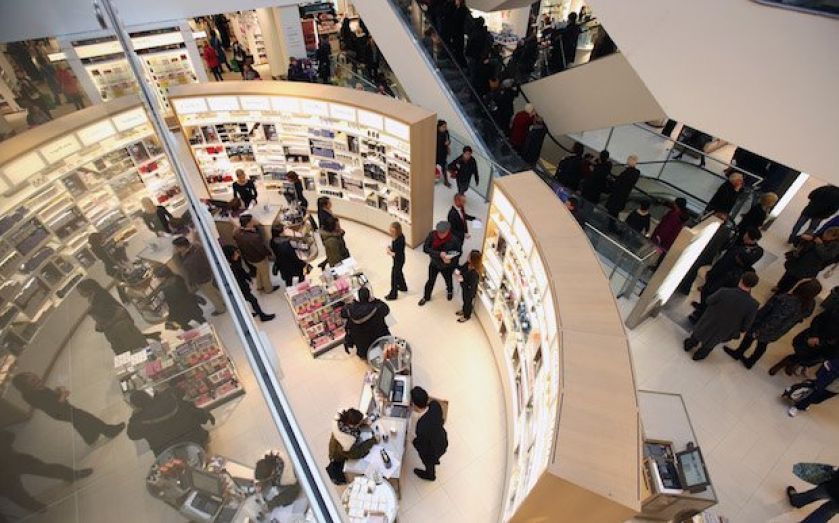2013 growth revised down as savings worries mount

The UK economy grew by 0.7 per cent in the last quarter of 2013, in line with consensus, according to the latest numbers from the Office for National Statistics (ONS).
But for the full year, GDP was revised down to 1.7 per cent, compared to the earlier estimate of a 1.8 per cent rise from 2012.
At an annualised rate, the number was left unchanged, with the economy expanding at a pace of 2.7 per cent.
Jeremy Cook, chief economist at the currency firm World First, has commented that, while growth has stayed strong over the last year or so, “today’s numbers confirm that it has come at a cost.”
The 0.4 per cent quarterly rise in consumer spending was funded by households saving less, with personal finance positions deteriorating.
Real disposal income dropped 0.1 per cent from the previous quarter, with households reducing the proportion of their income that they save to five per cent from 5.6 per cent.
Cook says we all know that the robust retail sales yesterday – which came in at a stronger annualised rate than China – come “from unsustainable spending practices via an expansion of consumer credit and a reduction in savings patterns…”
On the up side, a recovery in real earnings and further employment gains should, explains research group Capital Economics, “provide more solid foundations for further growth in consumer spending this year”.
It therefore thinks the economy will continue to keep up the fourth quarter’s pace throughout 2014.
Moreover, growth was actually far less dependent on consumer spending in the fourth quarter, with business investment and exports both improving significantly.
Indeed, as Howard Archer of IHS Global Insight points out, consumer spending growth actually slowed appreciably compared to the third quarter, but was still respectable.
Business investment was up 2.4 per cent from the third quarter and 8.7 per cent year-no-year. Net trade was pisitive, with export growth upped markedly to 2.8 per cent quarter-on-quarter.
Chief executive of Saxo Capital Markets Torben Kaaber said today's GDP numbers show the UK's on the right track, but is confident the trend it a "solid foundation upon which to build on with investment inflows". "With stable inflation outlook, coupled with falling unemployment, today’s GDP figures reaffirm the sterling’s safe-haven status.”

Deficit & borrowing
In the fourth quarter of last year, the current account deficit was £22.4bn – that's only just below the £22.8bn seen in the previous quarter and the second largest deficit on record.
Many economists had expected the much-smaller £14bn. That brings the deficit to 5.4 per cent of GDP, from 5.6 per cent in the last quarter.
In 2013, the UK’s current account deficit was £71.1bn – a "horrible looking" shortfall, says Archer.
This is in marked contrast to the surpluses on the net income account that the UK regularly saw up until the end of 2011. It has to be hoped going forward that improving global growth not only supports UK exports but also lifts earnings on UK investment abroad.
Net borrowing came in at £65.7bn, from £55.4bn in 2012 – predominantly a result of increased deficits in income and current transfers, partially balanced by a smaller deficit in trade, said the ONS.